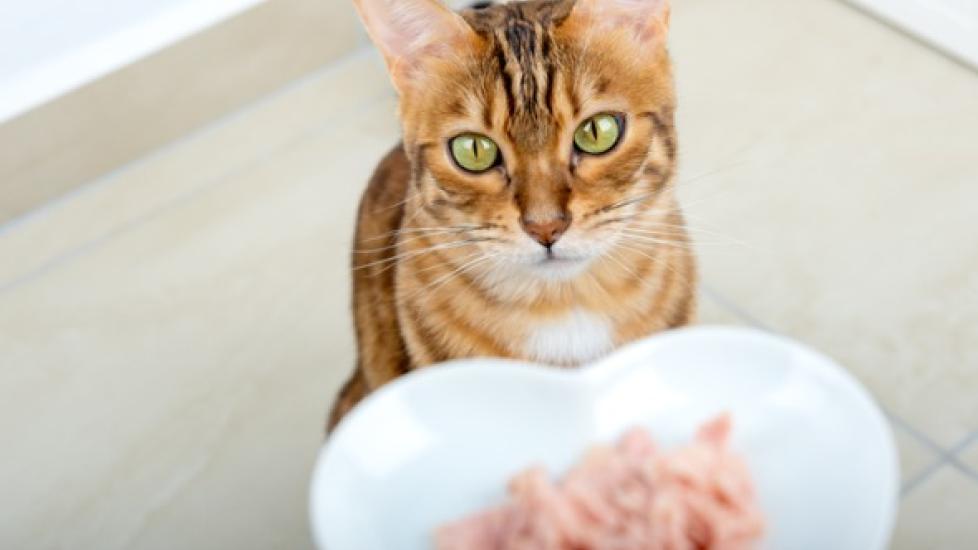3 Diet Tips for Cats With Arthritis
Managing arthritis in cats is difficult. The drug class that is the mainstay of treatment for both dogs and people is nonsteroidal anti-inflammatories (NSAIDs). Veterinarians may prescribe NSAIDs for short-term pain management in cats under certain circumstances. When used appropriately and prescribed by a veterinarian, they can be safe and effective. However, arthritis treatment is almost always long-term.
Buprenorphine is an opioid pain reliever for cats that is safe and effective but addictive to both humans and cats. It’s relatively expensive if you are using it day in and day out for the rest of your cat’s life. Veterinarians might recommend it for short-term use when other forms of treatment are no longer able to keep your cat comfortable, but they may reserve it for late-stage arthritis.
Thankfully, dietary modifications have proven to be an excellent way to help treat arthritis in cats. Here are some ways you can change your cat’s diet to support their joint health:
Keep Your Cat Lean
Most importantly, arthritic cats should not be overfed. The weight of extra body fat stresses arthritic joints and results in pain. Fat tissue also secretes hormones that cause inflammation, and since inflammation is at the heart of arthritis, anything that increases it needs to be avoided.
For these reasons, arthritic cats should be fed an amount of food that keeps them a little on the skinny side. Ask your vet for specific measurements of how much to feed the particular diet that your cat is on. The guidelines on the bag are a start, but your vet can give you a more precise measurement.
Feed the Right Amount of Quality Protein
Diets for cats with arthritis should contain adequate amounts of protein. Protein helps build muscle, and strong muscles help support joints. Most cats with arthritis are older, and older cats usually need more protein than they did when they were young.
Foods for arthritic cats should contain high-quality sources of animal-based protein that are easy to digest. Look at the ingredient list to make sure at least one animal protein is listed as the first or second ingredient. The minimum protein percentage on the product’s guaranteed analysis should not be less than around 35% or so, on a dry matter basis.
For dry food, this is the percentage you’ll see in the Guaranteed Analysis section on the bag. For wet food, you’ll need to do a little math:
Subtract the percent moisture from 100. This is the percent dry matter for the food. Next divide the protein percentage on the label by the percent dry matter and multiply by 100. The result is the protein percentage on a dry matter basis. You can compare this directly to the one on the dry food bag.
Try Joint Health Supplements
Dietary supplements are also quite helpful in treating arthritis in cats. Cats with arthritis can benefit from chondroprotectants (supplements that promote cartilage health).
A combination of glucosamine and chondroitin sulfate or extracts from green-lipped mussels are commonly used and can be mixed into your cat’s food or given as treats. Dasuquin® is a favorite option that comes in a flavored chew with glucosamine, chondroitin, omega-3, and other ingredients.
An injectable chondroprotectant such as Adequan® is another option that works well. It may be difficult and stressful for all involved, however, to keep taking your cat in to see the vet for injections.
Many people also like to give fish oil, the best source of omega-3 fatty acids, to cats with arthritis. Several studies have shown that arthritic cats fed high doses of omega-3 fatty acids tend to have less lameness and be more active than do cats who did not receive the supplements.
Many fish oil supplements come in a pump dispenser, so you can mix the oil into your cat’s food as instructed on the label. Just be aware of how many calories you’re adding to your cat’s diet each day through fish oil. Make sure that you start out with a diet that is relatively low in other sources of fat. The last thing you want is for your cat’s arthritis supplements to cause weight gain, undoing the good you are doing by altering their diet in the first place.
Featured image: iStock.com/Svetlana Sultanaeva
